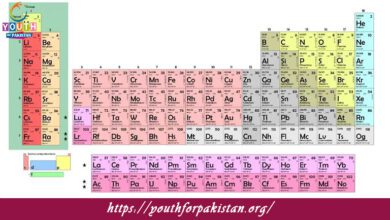Enthalpy Change Δh MDCAT Quiz with Answers

Enthalpy Change Δh MDCAT Quiz: chemical reactions and energy transformations. It represents the heat absorbed or released during a chemical reaction at constant pressure. Understanding ΔH is vital for predicting whether a reaction will be exothermic or endothermic and how energy is exchanged during chemical processes. This concept is frequently tested in MDCAT Quiz questions related to thermodynamics and heat transfer in reactions.
Measuring Enthalpy Change
The enthalpy change in a reaction can be measured experimentally using a calorimeter. It measures the heat exchanged between the system (the reactants) and the surroundings during a reaction. For MDCAT students, the application of the principles of calorimetry to calculate ΔH is crucial in solving practical problems in the exam. Alternatively, ΔH can be calculated through Hess’s Law or standard enthalpy values, ΔH°, which are ways of working out the heat change in complex reactions.
Enthalpy Change and Reaction Types
Different types of reactions involve different amounts of energy release or absorption:
Exothermic Reactions: In this type of reaction, the energy is released to the surrounding and has lower enthalpy in products compared to the reactants. For example, combustion reactions, such as burning of fuels, are exothermic and have a negative ΔH.
Endothermic Reactions: These are reactions that absorb energy from the surroundings; hence, they have a positive ΔH. A classic example is photosynthesis, where plants use heat energy to convert carbon dioxide and water into glucose.
Applications in Thermochemistry
Enthalpy changes can be used in the computation of heat exchanged in chemical reactions and in the prediction of the feasibility of reactions under different conditions. Many MDCAT Quiz questions require students to determine the enthalpy change of reactions using Hess’s Law, standard enthalpies of formation, or other thermodynamic principles.
Mastering the concept of Enthalpy Change (ΔH) is very important for MDCAT students to excel in questions related to heat changes in chemical reactions. The use of MDCAT Quiz and Free Flashcard tools will help students grasp the concept of enthalpy and apply it to solve complex thermochemistry problems during the exam.

The change in enthalpy (ΔH) for a reaction at constant pressure is equal to the __________.
heat absorbed or released

The enthalpy change for the dissolution of salts in water is measured in __________.
kilojoules per mole

The enthalpy change for a reaction at constant pressure can be found from the __________.
heat of reaction

Hess's Law states that the total enthalpy change in a reaction is __________.
independent of the path of the reaction

Enthalpy is a __________ quantity, meaning it depends on the initial and final states of the system.
state function

The standard enthalpy change for a reaction can be calculated by using the __________.
standard enthalpies of formation

The enthalpy change in a reaction can be negative or positive, depending on the __________.
nature of the reaction
Experience the real exam environment with our expertly designed collection of over 25,000 MCQs MDCAT Mock Tests.





